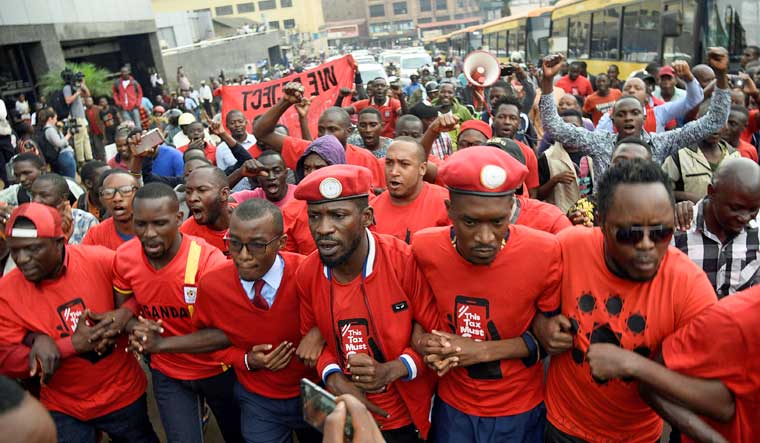Uganda will review a tax on the use of social media, the prime minister said today after a protest against the controversial measure was broken up by police firing live rounds and teargas into the air.
Prime Minister Ruhakana Rugunda told parliament that President Yoweri Museveni had "encouraged further discussion" on the fiercely-contested levy. "Government is now reviewing the taxes taking into consideration the concerns of the public" and an amended bill will be debated on July 19, said Rugunda.
Since the start of July, access to media such as WhatsApp, Facebook and Twitter, as well as dating sites Tinder and Grindr, have been blocked unless users pay a 200-shilling (USD 0.05, 0.04 euro) daily tax.
Museveni last week had defended the move, saying many citizens did not pay their taxes as they ought to, and should not "donate money to foreign companies through chatting or even lying" on social media.
In its current form, tax requires mobile internet users to input a code on their phones to pay the charge before they are able to access social media sites. However, implementation has proved patchy and some blocked services are still available.
Some sites have turned to virtual private networks (VPNs) to disguise their location and avoid the levy, a trick learned during elections two years ago when the government tried to shut down social media.
Popular singer and parliamentarian Bobi Wine -- real name Robert Kyagulanyi -- whose election last year was fuelled by social media, has led the chorus of complaints against the tax.
He helped organise the rally today, in which scores of people turned out defiantly dressed in red -- a colour synonymous with protests against lifting the presidential age limit last year.
Protests do not often draw large crowds in Uganda, as they are often met by overwhelming force from police and military units.
As cracks from police guns echoed around the tightly packed buildings of central Kampala, bystanders rushed to angrily confront the police and shout their support for Bobi Wine. Market vendors and motorcycle taxi drivers faced off against police in anti-riot gear, with some lobbing stones at the officers.
"Teargas was fired and some live ammunition was fired into the air to disperse the crowd," said police spokesman Luke Owoyesigire, adding two protesters had been arrested. "During the unlawful procession officers had to act. Some of our officers were assaulted."
Police attempted to arrest Wine, but his supporters successfully defended him and he arrived at parliament.
"We set out to show our displeasure at the social media and mobile money taxes. We had informed the police of our intention to march and so we are dismayed at the use of brute force and live ammunition to break up a peaceful protest," said one of the organisers, prominent television journalist Raymond Mujuni. "It's not right. Our rights as citizens are being trampled upon.”

